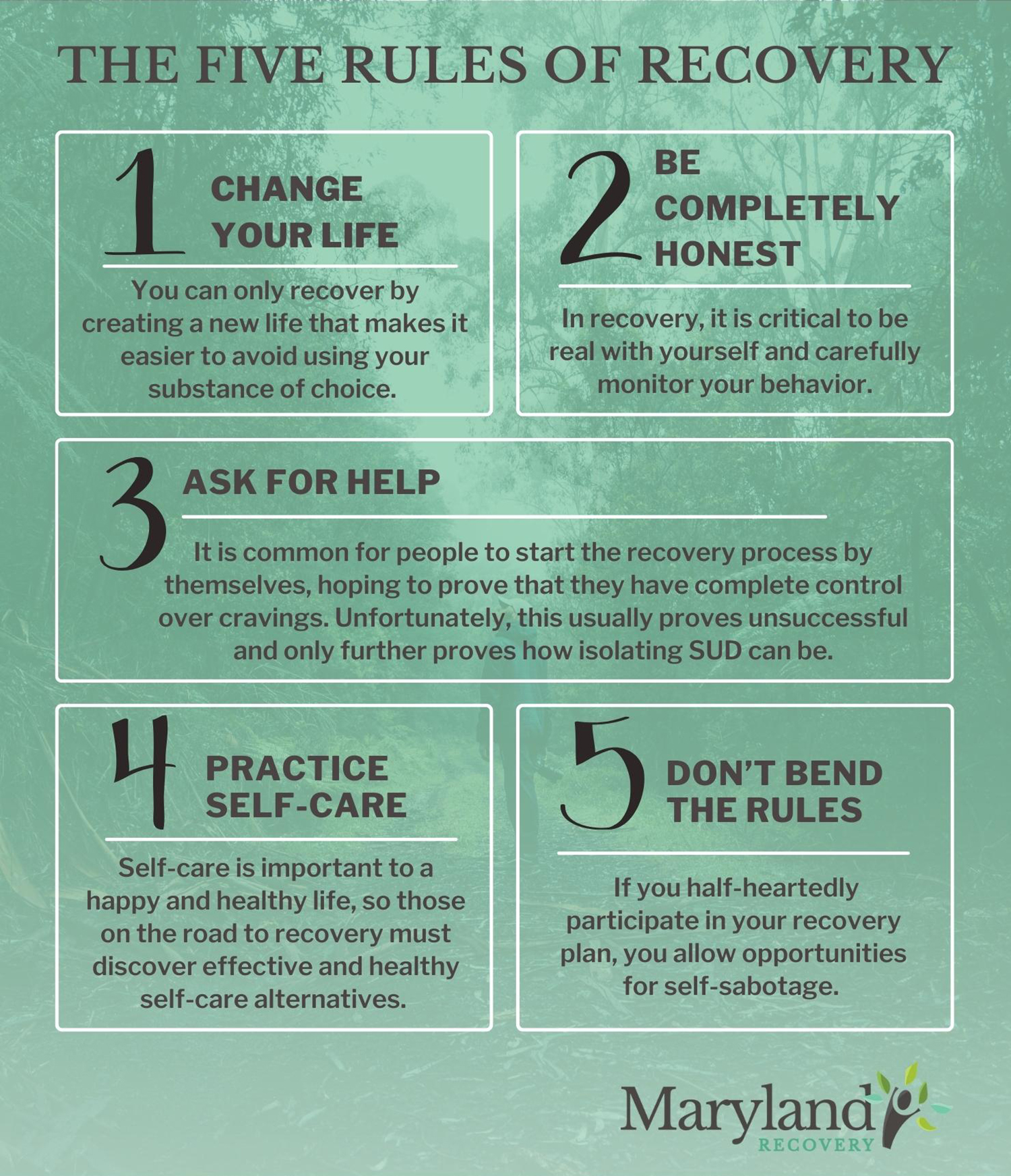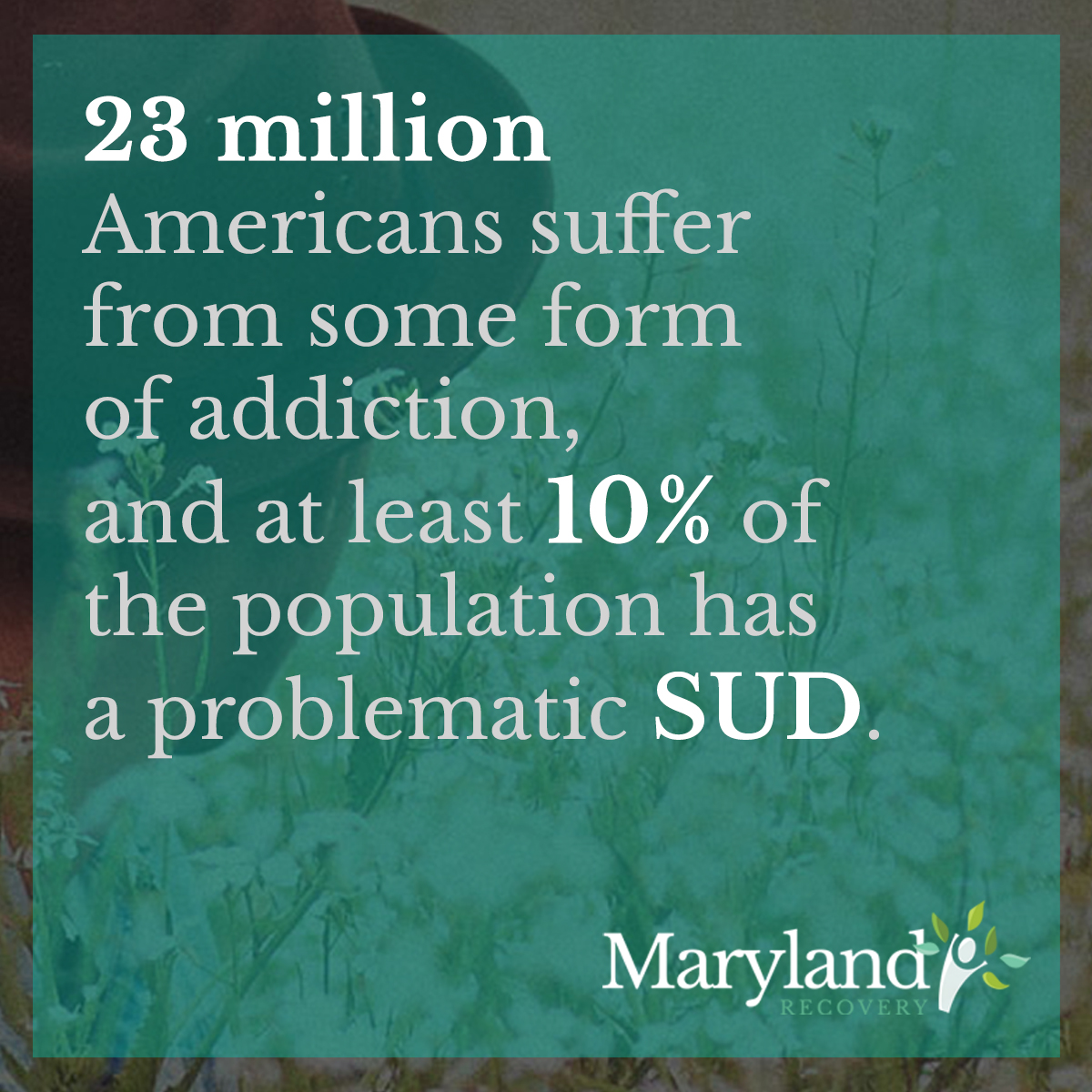
Why consider the rules of recovery? Well, recovery from a substance use disorder is long, arduous, and rarely as straightforward as simply “not using drugs.” However, it is ultimately up to the individual to make each step towards recovery, keep a firm focus on their goals, and avoid relapse.
Stages of Recovery, Rules, and Relapse
Relapse prevention treatment is essential for those on the path to recovery, especially those who have found quitting on their own to be difficult. Whether or not you began your recovery by attending professional SUD treatment, the 5 Rules of Recovery are a great tool for preventing relapse and keeping yourself on the road to recovery. If you find yourself uncertain what to do, or even if you simply want to confirm you are on the right path, you can simply ask yourself if you are following the five rules.
Before we get into the five rules, however, it is important to first understand relapse is a gradual process with three stages:
- Emotional Relapse—Emotions and behaviors, rather than rationality, begin to set you up for relapse. At this point, people are often in denial about relapse symptoms and therefore do not consciously think about using.
- Mental Relapse—Individuals experiencing cognitive resistance to treatment plans often feel divided. A part of them wants to use, while another part may continue to see the benefits of continued sobriety.
- Physical Relapse—Individuals start using again. In many cases, this can lead to a relapse of uncontrolled use.
Since recovery requires extensive personal growth, it harbors opportunities for relapse at each milestone.
The Four Stages of Recovery are:
- Abstinence – During this stage, the primary focus is on dealing with cravings and not using.
- Post-Acute Withdrawal – Unlike the physical symptoms of acute withdrawal that occur immediately after ceasing use of the substance, post-acute withdrawal syndrome causes individuals to suffer from psychological and emotional symptoms.
- Repair Stage – During this stage, individuals focus on repairing damage caused by addiction through cognitive therapy, repairing relationships, and more.
- Growth Stage – Individuals develop skills, such as identifying self-destructive patterns or incorporating mind-body relaxation, to further prevent relapse.
The Five Rules of Recovery
The above stages of recovery, as well as most forms of relapse, can be explained by the five rules of recovery. Start living by these five basic rules to increase your chances of a smooth and healthy recovery and avoid relapses along the way.

Rule of Recovery 1: Change Your Life
Recovering from substance use disorder requires more than simply stopping the use of substances. You can only recover by creating a new life that makes it easier to avoid using your substance of choice. If you do not remove the factors that helped get you to the point of SUD, then you are more likely to relapse. Think of it this way—if you do not make changes to your daily lifestyle, you will be faced with the same temptations and triggers that were in place during your worst days struggling with SUD. As tough as it can be to accept for some people, wishing for your old life back is like wishing to relapse.
This first step can be overwhelming, especially if you find it hard to say goodbye to toxic people, places, and things that previously aided in your SUD. It is also impossible to avoid all bad aspects of your previous life. However, if you are aware of them, they will not catch you off-guard. You can also be prepared to meet them head-on with positive coping strategies.
Changing your life to avoid relapse involves avoiding high-risk situations. Avoid people that encourage you to use and, if necessary, clearly communicate to these people that you now prioritize your health over these relationships. If possible, avoid visiting places you used and throw out all things you used with, such as drug paraphernalia.
As you adjust to these life changes and encounter relapse triggers, pay attention to how your body feels. Cravings grow stronger when you are hungry, angry, lonely, and/or tired (HALT), so if you experience a craving, ask yourself if one of these feelings could be the culprit instead. Also keep negative thinking patterns in check by surrounding yourself with a positive support system and utilizing medical professionals and/or therapy. With a positive attitude, you can view recovery as an opportunity to move forward, grow, and be happier than before.
Rule of Recovery 2: Be Completely Honest
While your substance use disorder likely requires you to lie frequently, recovery requires complete honesty with yourself and those in your recovery circle. Unfortunately, people suffering from SUD become accustomed to the web of lies that helped them continue to use and hide evidence—both of how they acquired the drug as well as of the dire consequences of using. Many people in recovery feel as though they have lost their sense of self for this reason.
In recovery, it is critical to be real with yourself and carefully monitor your behavior. SUD is sneaky by nature, but radical honesty removes all the spaces for these behaviors to hide. What is the real reason behind visiting that bar or catching up with that old friend? Will more lying keep you on the path to recovery? Will more of the same lead to your overall health and happiness?
It is important to have empathy for yourself. The honesty required in recovery will not come naturally at first. You must mindfully practice telling the truth hundreds of times before the truth becomes your new habit. Through this honesty, you can identify an impending relapse before it occurs, and take steps to cope with your urges that may include seeking help from others.
Rule of Recovery 3: Ask For Help
You’re not alone! 23 million Americans suffer from some form of addiction in the United States, and at least 10% of the population has a problematic SUD. Help from a professional SUD treatment center can provide you with the best resources, designed to maximize your chances of sustained recovery. It is common for people to start the recovery process by themselves, hoping to prove that they have complete control over cravings. Unfortunately, this usually proves unsuccessful and only further proves how isolating SUD can be. However, while substance use requires isolation to continue, recovery requires you to reach out and ask for help.
We suggest joining and participating in self-help groups and substance abuse programs. By meeting with and listening to the experiences of people going through similar experiences, people can learn together how guilt, shame, embarrassment, and self-hate have no place in the recovery process and life in general.

Both during and after professional treatment, self-help groups like Alcoholics Anonymous (AA) and Narcotics Anonymous (NA) remind individuals that they are not alone. During meetings, you can learn how SUD is experienced by others, learn how other people have coped with the recovery process, and build a safe, non-judgmental space.
Outside of self-help groups, we encourage you to build a recovery circle. A safe recovery circle can include close family members, close friends, members of self-help recovery groups, and health professionals. Together, your groups and recovery circle can help you identify and avoid relapse.
Rule of Recovery 4: Practice Self-Care
Just as dieters view cheat meals as rewards and students view summer vacation as an escape from school, people with SUD tend to view drugs and alcohol as the go-to method for escaping, relaxing, and rewarding themselves. However, substance use is not a legitimate coping or self-care strategy. Self-care is important to a happy and healthy life, so those on the road to recovery must discover effective and healthy self-care alternatives.
Self-care is often overlooked because recovering individuals tend to be hard on themselves and feel as if they do not deserve any kind of reward. Those who struggle with self-care must understand the difference between selfishness and self-care. Selfish people take more than they need and overindulge in rewards. Self-care practitioners, alternatively, take as much as they need to meet their goals and thrive.
If you forego self-care, you risk becoming fed up and resentful, increasing your risk of returning to your substance of choice to temporarily escape from these overwhelming feelings. Remember: denying yourself ways to escape, relax and receive reward is not recovery. Instead, recovery simply requires you to find better, healthier, alternatives for those things.
Keep in mind that self-care does not need to be extravagant. Develop self-care through your health such as sleeping for eight hours, eating a nutritious and balanced diet, and making time for daily exercise. Find ways to relax, maybe through meditation or beginning a new book series. Then, find ways to escape, perhaps by watching an entertaining movie or developing a new hobby. Together, self-care strategies can help you reduce the stress and avoid the negative thoughts that often lead to relapse.
Rule of Recovery 5: Don’t Bend the Rules
Your recovery is not to be negotiated with. While the path to recovery can look radically different depending on the individual, bending the rules to fit your temporary desires is not an option if you genuinely want to recover. In other words, if you don’t wholeheartedly participate in your recovery plan, you allow opportunities for self-sabotage. Instead, embrace your recovery and the opportunity it has given you to change your life for the better. This will require daily discipline and courage, but if you live by these five rules, then you will have the tools and support necessary to follow through.
You Can Achieve Happiness Following the Rules of Recovery

A common fear many people in the recovery process face is that they are not truly capable of recovery. This is false! Everyone struggling with substance use disorder can develop the tools and strategies necessary to remain in recovery. These five rules are an excellent tool to keep in your back pocket and will remind you of the necessary steps you must take to achieve recovery and a better life.
Sources
- https://www.ncbi.nlm.nih.gov/pmc/articles/PMC4553654/
- https://www.nih.gov/news-events/news-releases/10-percent-us-adults-have-drug-use-disorder-some-point-their-lives
Reviewed by Christopher Schwartfigure MS, LGPC, CAC-AD








